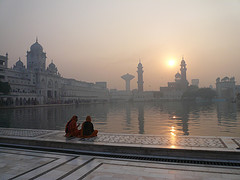Clinical Trial in India - An Overview
Global Pharmaceutical companies based in developed countries are increasingly turning to developing countries and emerging economies around the world for conducting clinical trials. Reduced costs combined with easy availability of patients with varied diseases makes developing countries favourite destinations for clinical research outsourcing.
The whole 9 pages article is available for download here.
Drug trials, commonly known as clinical trials, are scientific tests made on human volunteers. Such trials are carried out in 3phases. In the first phase, studies are carried out on volunteers to determine the safety of the drug. In the second phase, on persons having the disease or medical condition to determine whether the drug has some level of therapeutic effect. In the last phase, trials are long-term studies on patients to determine whether the drug will be truly effective in normal medical settings.
India, a country with the largest pool of patients suffering from cancer, diabetes and other maladies, has become the global hub for carrying out clinical trials at random. Almost all the top pharmaceutical companies of the world have set up clinical trial facilities in major cities, like Ahmedabad, Hyderabad, etc. A large native patient population pool, various disease profiles and robust infrastructure position India high on the outsourcing list. Today, 122 clinical trials are being conducted in India.
GlaxoSmithKline, among the world's top ten global pharma majors, is currently carrying out the largest number of clinical trials in India. Apart from the development of vaccines, the UK-based pharma major is conducting 13 drug trials in India for the treatment of diseases such as cancer, arthritis, epilepsy, heart disease and constipation. These trials include phase II, III as well as phase IV clinical drug trials.
AstraZeneca is another global pharma company outsourcing a significant number of its trials to India. Out of the 186 clinical trials the company is at the moment conducting worldwide, about nine have investigation centres in India. These studies include drug trials for schizophrenia, bipolar disorder, cancer, diabetes and testotoxicosis and are conducted on adults and, in certain cases, children.
Likewise, Johnson & Johnson and Eli Lilly are conducting respectively eight studies in India, while seven drugs trials are lead by Pfizer. Sanofi-Aventis, Merck, Wyeth, Bristol-Myers Squibb and Roche also count among the list of companies conducting clinical research here.
To understand why developing countries have become a hot spot for clinical research, one needs to look at the drug development process in totality. This process, which starts in the research labs and ends with a drug being launched in the market, is not only time consuming; it is also extremely expensive. The cost of drug development is estimated at $1bn, and clinical trials on humans -- a critical phase in new drug development -- account for 40% of the total cost. Outsourcing clinical research to developing countries can allow global pharma companies to considerably trim costs. Clinical trials in India, for instance, cost 50% to 60% less than the average cost in the US.
The whole 9 pages article is available for download here.

